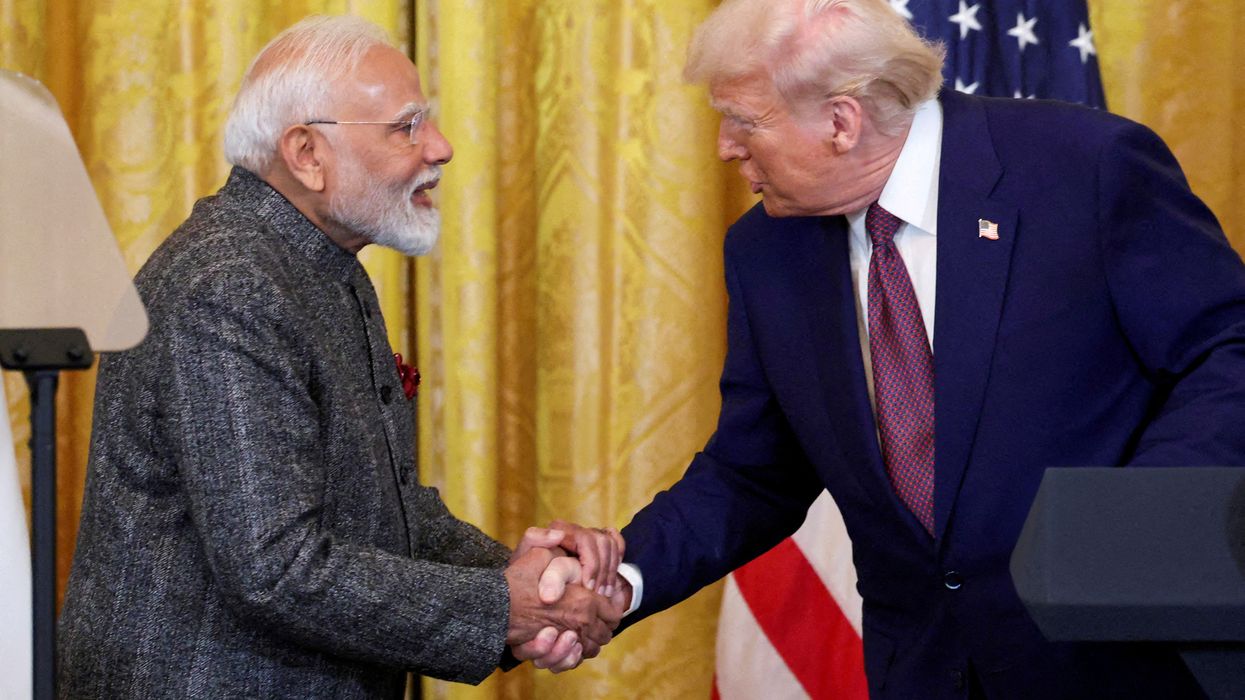TRADE talks between India and the US have hit a roadblock over disagreements on import duties for auto components, steel and farm goods, Indian officials with direct knowledge said, dashing hopes of reaching a deal ahead of president Donald Trump's July 9 deadline to impose reciprocal tariffs.
The deadlock marks a sharp shift from earlier optimism, following Trump's claim that New Delhi had proposed a "no tariffs" agreement for American goods, and officials from both sides suggesting India could be among the first countries to strike a deal on the new US tariffs.
India is pushing for a rollback of the proposed 26 per cent reciprocal tariff set to take effect on July 9, along with concessions on existing US tariffs on steel and auto parts. But US negotiators have not yet agreed to the demands, three Indian government officials said.
"The US side first wants India to commit to deeper import tariff cuts on farm goods like soybeans and corn, cars and alcoholic beverages along with easing of non-tariff barriers," leading to disagreement between the two sides, one of the sources said.
The sources spoke on condition of anonymity, citing the confidentiality of the ongoing discussions.
India's commerce ministry, the US Embassy in New Delhi and the US Trade Representative Office did not immediately respond to requests for comment.
An Indian delegation is expected to travel to Washington before the deadline, although discussions may now focus on a broader agreement rather than a rushed interim deal, a second Indian government source said.
Prime minister Narendra Modi is trying to position India as a key US partner, seeking to attract US firms like Apple, diversifying supply chains away from China.
But trade talks have struggled to make headway.
"We are keen, but not desperate to sign a deal before the July 9 deadline," the first source said, adding that India has offered tariff cuts on almonds, pistachios, walnuts, and was willing to extend preferential treatment for American imports in sectors like energy, autos and defence.
"There hasn't been much progress despite several rounds of talks," the second source said.
Still, the sources did not rule out a last-minute breakthrough if Modi and Trump choose to intervene directly.
Despite the impasse, Indian officials stress long-term commitment to the US as a trusted economic partner, while maintaining policy independence.
Modi and Trump agreed in February to conclude the first phase of a bilateral trade agreement by autumn 2025 and to expand trade to $500 billion (£395bn) by 2030, from about $191bn (£151bn) in 2024.
India is also advancing talks with the European Union for a free trade pact later this year, and recently concluded talks for a FTA with the UK - moves aimed at hedging against potential US policy shifts under Trump.
"The ball is now in the US court. India is not for any win-lose trade partnership," said Ram Singh, head of the Indian Institute of Foreign Trade, a government funded think-tank.
Even in a worst-case scenario, a third official said, India could absorb the impact of reciprocal tariffs, citing its continued tariff advantage over competitors like Vietnam and China.
India's exports to the US rose to $17.25bn (£13.6bn) in April-May, up from $14.17bn (£11.2bn) a year earlier, suggesting the US tariff hikes averaging 10 per cent in early April had a limited impact.
(Reuters)





